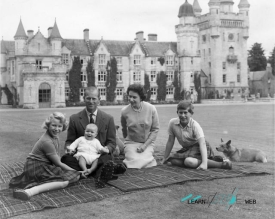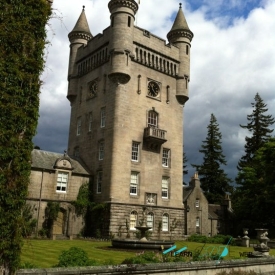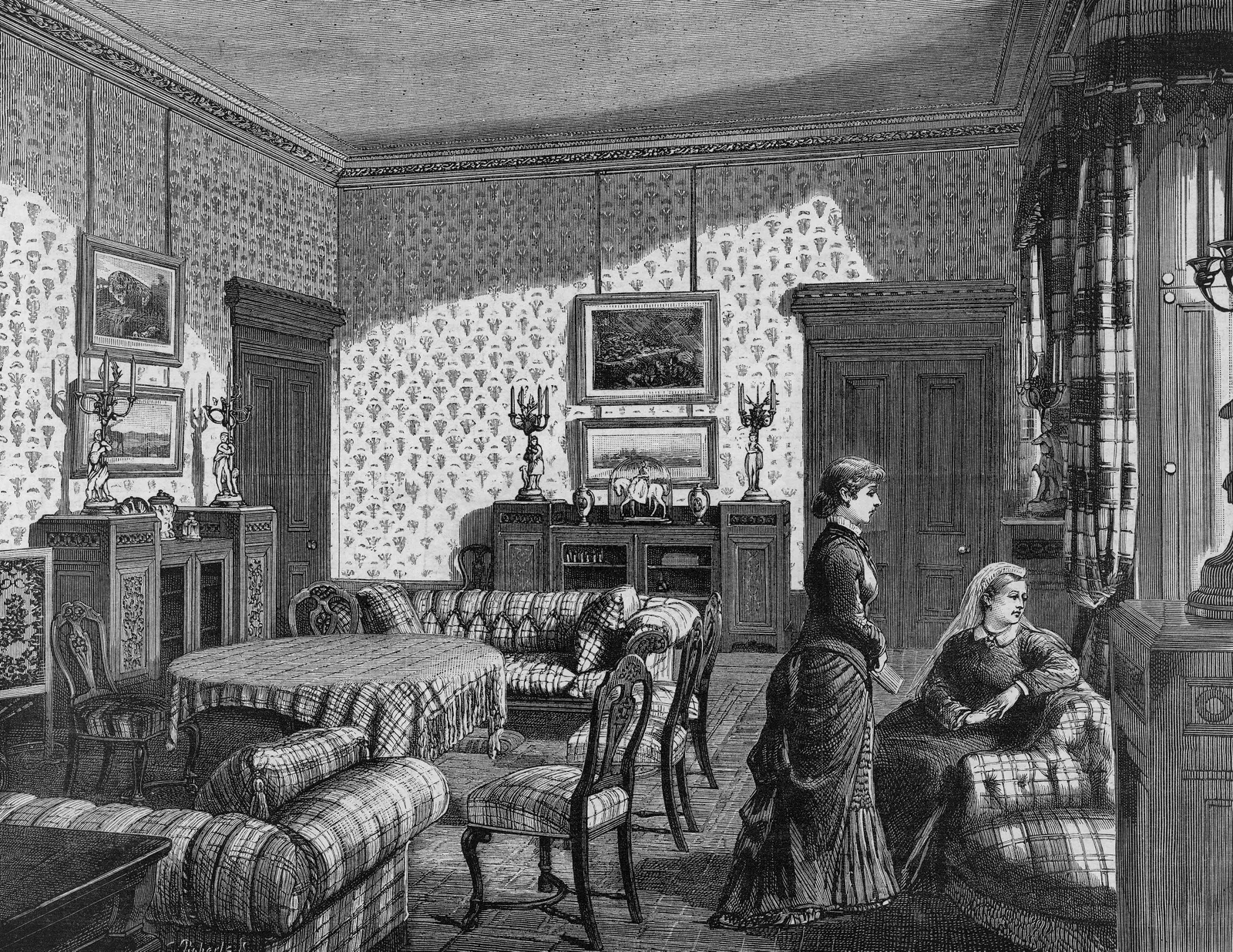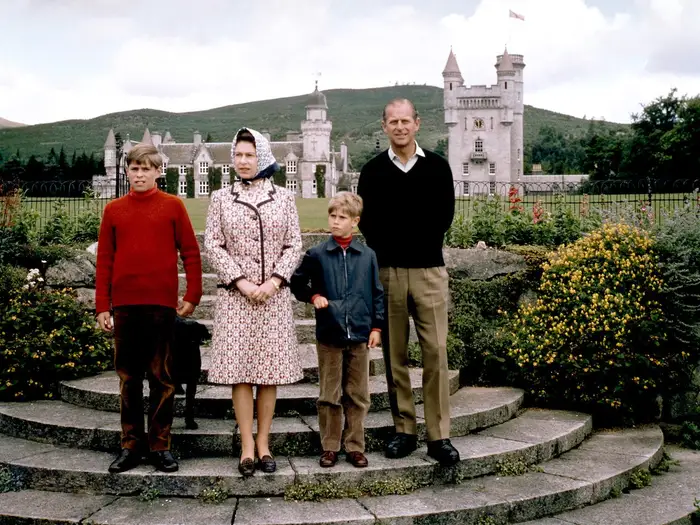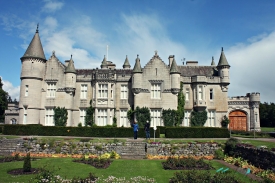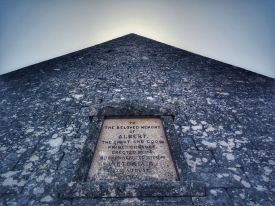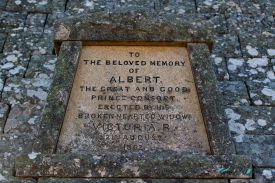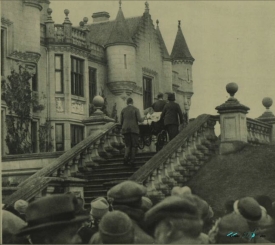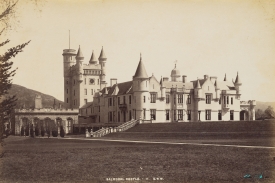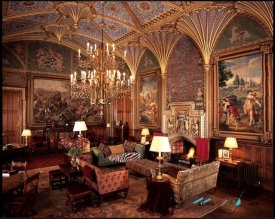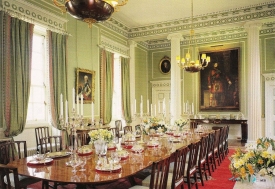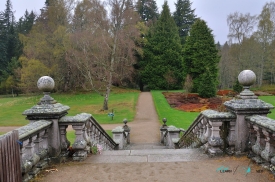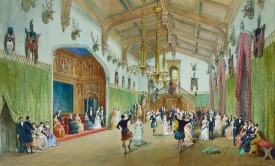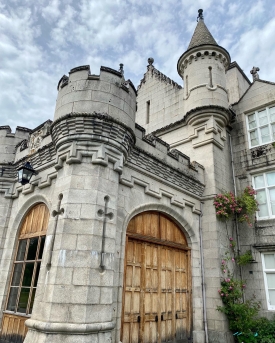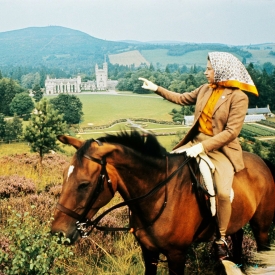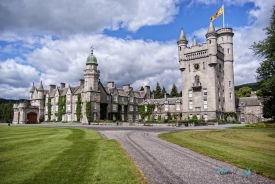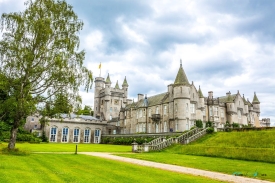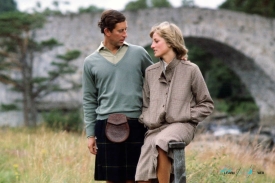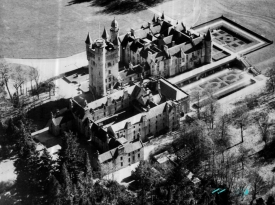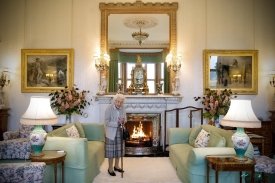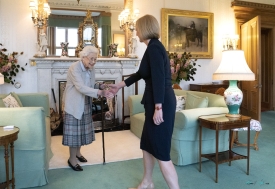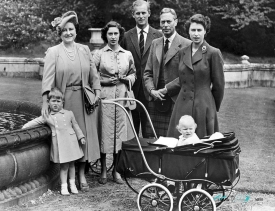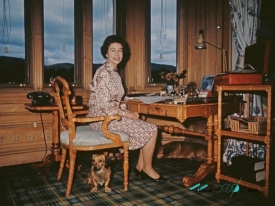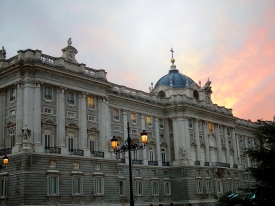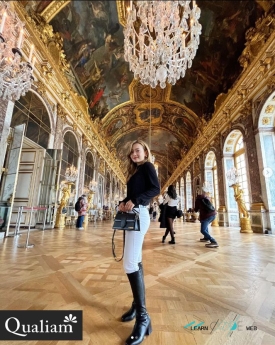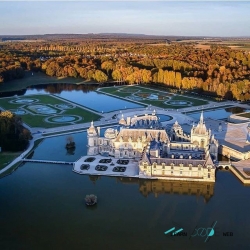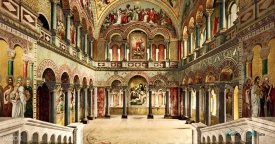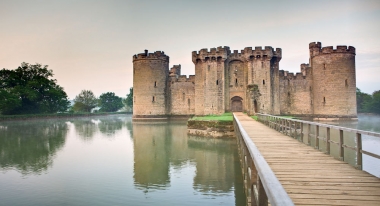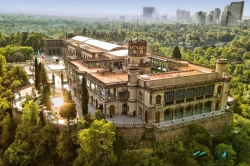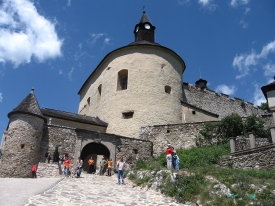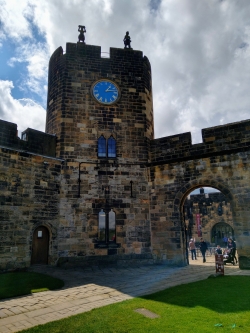ABOUT Balmoral Castle
Balmoral Castle is a castle on the on the right bank of the Dee (spanned by a beautiful bridge), on Lochnagar Mountain in Aberdeenshire, Scotland. The name "Royal Deeside", which describes the landscape at the top of the Dee, dates back to the royal owners. It was the summer residence of Queen Elizabeth II of Great Britain, who died there on September 8, 2022. She stayed there about twelve weeks each year between August and October. The castle was the private property of the monarch and was not part of the Crown Estate.
The castle was built in the 14th century as the residence of Sir William Drummond. The area had previously served as a hunting ground for King Robert II of Scotland. The estate was later tenanted by Alexander Gordon, second son of the first Earl of Huntlym, they built a tower house.
In 1662, the estate passed to Charles Farquharson of Inverey, brother of John Farquharson. The Farquharsons were Jacobite sympathisers and James Farquharson of Balmoral was involved in both the 1715 and 1745 rebellions. He was wounded at the Battle of Falkirk in 1746. The Farquharson estates were forfeit, and passed to the Farquharsons of Auchendryne. In 1798, James Duff, 2nd Earl Fife, acquired Balmoral and leased the castle. Sir Robert Gordon, a younger brother of the 4th Earl of Aberdeen, acquired the lease in 1830. He made major alterations to the original castle at Balmoral, including baronial-style extensions that were designed by John Smith of Aberdeen.
In the years that followed, the castle, which was much smaller than it is today, changed hands several times until it was acquired by James Duff, second Earl Fife. In 1848 it was rented to Queen Victoria and Prince Albert as a holiday home. Both fascinated by the Scottish countryside, they purchased Balmoral Castle as the couple's private property.
Victoria took long walks of up to four hours daily and Albert spent many days hunting deer and game. In 1849, diarist Charles Greville described their life at Balmoral as resembling that of gentry rather than royalty.
In Balmoral his granddaughter Victoria Eugenia was born, who would become queen of Spain when she married Alfonso XIII.
The current castle is the work of the architect William Smith with the help of Prince Albert himself.
They also acquired the estate which today covers around 20,000-hectare (243 km²) of woods, hills and grasslands and is home to animals such as red deer, squirrels or grouse. In addition, there are about 150 buildings on the estate, including even a whiskey distillery.
Following Albert's death, Victoria spent increasing periods at Balmoral, staying for as long as four months a year during early summer and autumn.
The castle has around 50 staff who work at Balmoral throughout the year, the number doubling during the high season.
Since 1931, the castle gardens were opened to the public for the first time and they were open daily between April and the end of July, after which Queen Elizabeth II would have arrived for her annual stay. The ballroom is the only room in the castle that may be viewed by the public.
Queen Elizabeth II died at Balmoral Castle on September 8, 2022.
The castle was built in the 14th century as the residence of Sir William Drummond. The area had previously served as a hunting ground for King Robert II of Scotland. The estate was later tenanted by Alexander Gordon, second son of the first Earl of Huntlym, they built a tower house.
In 1662, the estate passed to Charles Farquharson of Inverey, brother of John Farquharson. The Farquharsons were Jacobite sympathisers and James Farquharson of Balmoral was involved in both the 1715 and 1745 rebellions. He was wounded at the Battle of Falkirk in 1746. The Farquharson estates were forfeit, and passed to the Farquharsons of Auchendryne. In 1798, James Duff, 2nd Earl Fife, acquired Balmoral and leased the castle. Sir Robert Gordon, a younger brother of the 4th Earl of Aberdeen, acquired the lease in 1830. He made major alterations to the original castle at Balmoral, including baronial-style extensions that were designed by John Smith of Aberdeen.
In the years that followed, the castle, which was much smaller than it is today, changed hands several times until it was acquired by James Duff, second Earl Fife. In 1848 it was rented to Queen Victoria and Prince Albert as a holiday home. Both fascinated by the Scottish countryside, they purchased Balmoral Castle as the couple's private property.
Victoria took long walks of up to four hours daily and Albert spent many days hunting deer and game. In 1849, diarist Charles Greville described their life at Balmoral as resembling that of gentry rather than royalty.
In Balmoral his granddaughter Victoria Eugenia was born, who would become queen of Spain when she married Alfonso XIII.
The current castle is the work of the architect William Smith with the help of Prince Albert himself.
They also acquired the estate which today covers around 20,000-hectare (243 km²) of woods, hills and grasslands and is home to animals such as red deer, squirrels or grouse. In addition, there are about 150 buildings on the estate, including even a whiskey distillery.
Following Albert's death, Victoria spent increasing periods at Balmoral, staying for as long as four months a year during early summer and autumn.
The castle has around 50 staff who work at Balmoral throughout the year, the number doubling during the high season.
Since 1931, the castle gardens were opened to the public for the first time and they were open daily between April and the end of July, after which Queen Elizabeth II would have arrived for her annual stay. The ballroom is the only room in the castle that may be viewed by the public.
Queen Elizabeth II died at Balmoral Castle on September 8, 2022.
The Best Pictures of Balmoral Castle
Videos of Balmoral Castle







